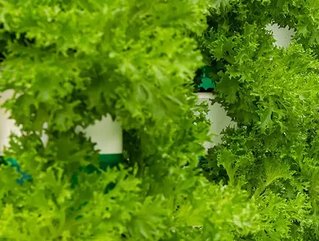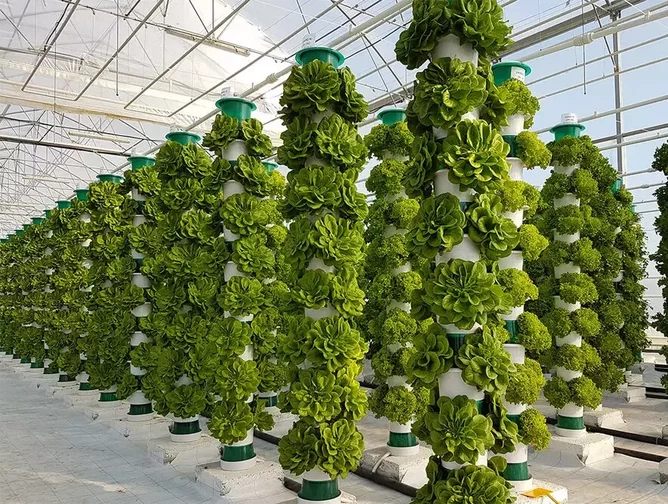Vertical farms take root to sustain the food supply chain

After an increase in supply chain woes, a new type of vertical farm could boost post-Brexit Britain’s ability to grow its own fresh produce.
A vertical farm is a super powered greenhouse, where the temperature and water supply is regulated, less pesticides are used, the environment is controlled and produce is stacked upwards, instead of across available land, as it is in traditional farming.
Shockingly Fresh’s first of many vertical farms has opened in Worcestershire, England, where it will grow:
- Heads of lettuce
- Pak choi
Vertical Farms are needed to feed the world
In 2020, 2.3bn people were classified as ‘lacking year-round access to adequate food’ by the UN. Yet the world’s population is expected to rise from 7.7bn now, to 8.5bn in 2030 and 10bn by 2060. Food insecurity is set to rise - but vertical farms can change that.
Of the world’s present population, 54% live in cities. The UN Sustainable Development Goals have advised countries to: “Enhance inclusive and sustainable urbanization for sustainable human settlement planning and management in all countries.” Vertical farms can work in any air-tight room and can support city-dwellers, where access to fertile land is out of reach. Vertical farms in cities will also mean that there are less transportation costs in bringing food into cities from rural areas.

Shockingly Fresh
Shockingly Fresh develops vertical farms from the ground up:
- Finding the right land for the project
- Designing the farm
- Securing planning permission and investment
- Construction, commissioning and production
The company is in partnership with:
- Valefresco, salad growing experts
- Indoor farming specialists Saturn Bioponics, whose hydroponic towers can grow multiple crop cycles of fresh produce
Edinburgh-based Shockingly Fresh is developing a number of sites countrywide – and is keen to speak to landowners and investors who are interested in this venture.
Vertical farms to become a part of the sustainable supply chain
“Vertical farming addresses some of the key challenges facing the food chain”, explains Nick Green, Shockingly Fresh Development Director. “The first farm will grow about two million heads of leafy greens a year – around four times the yield we would expect on a patch of land this size. This means the farms we are developing can not only grow more crops – it means we can grow crops for more of the year – extending our early and late season into times consumers would normally rely on salad imports. We also expect to see higher staff productivity, which will be critical in the years ahead. This ability to ‘grow our own’ in a clean, controlled environment, not only increases food security – it’s fresher and needs less water to grow. We believe vertical farms will become an important part of the fresh produce supply chain."






